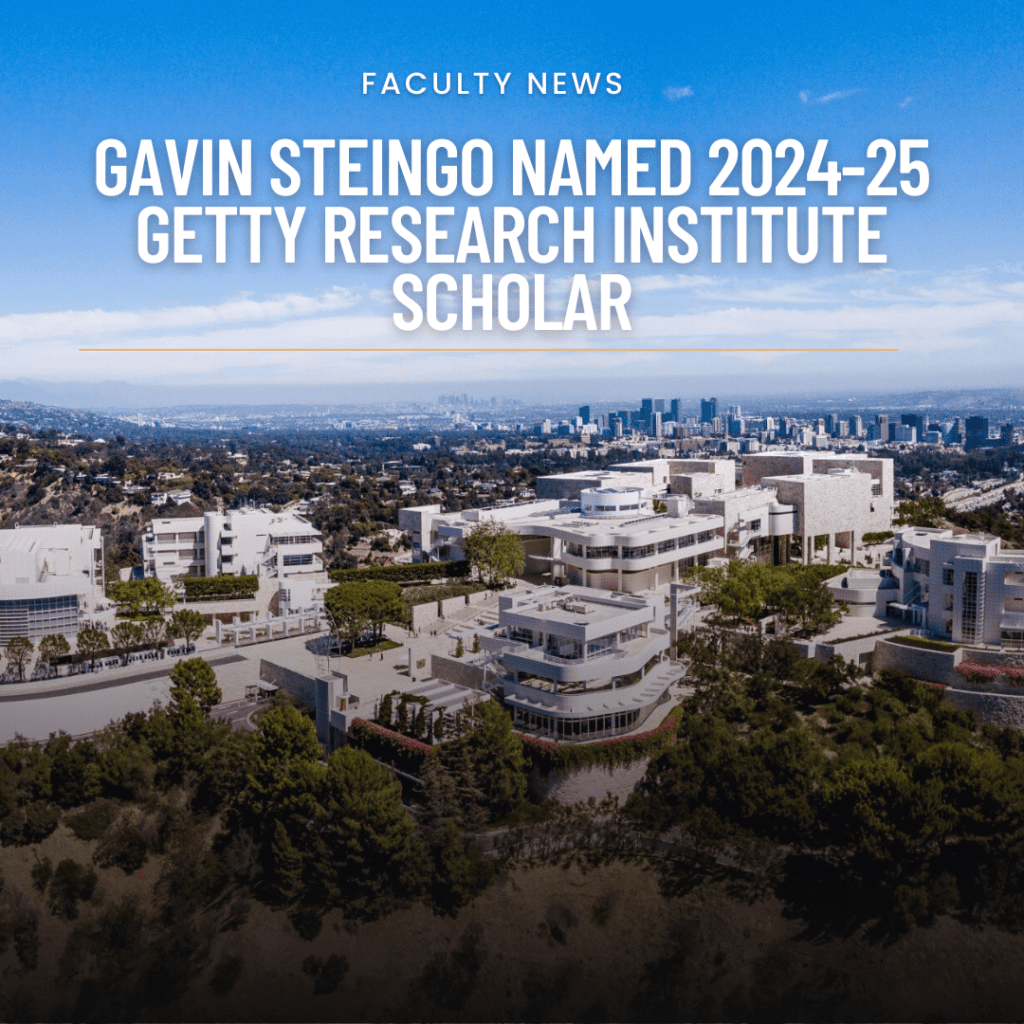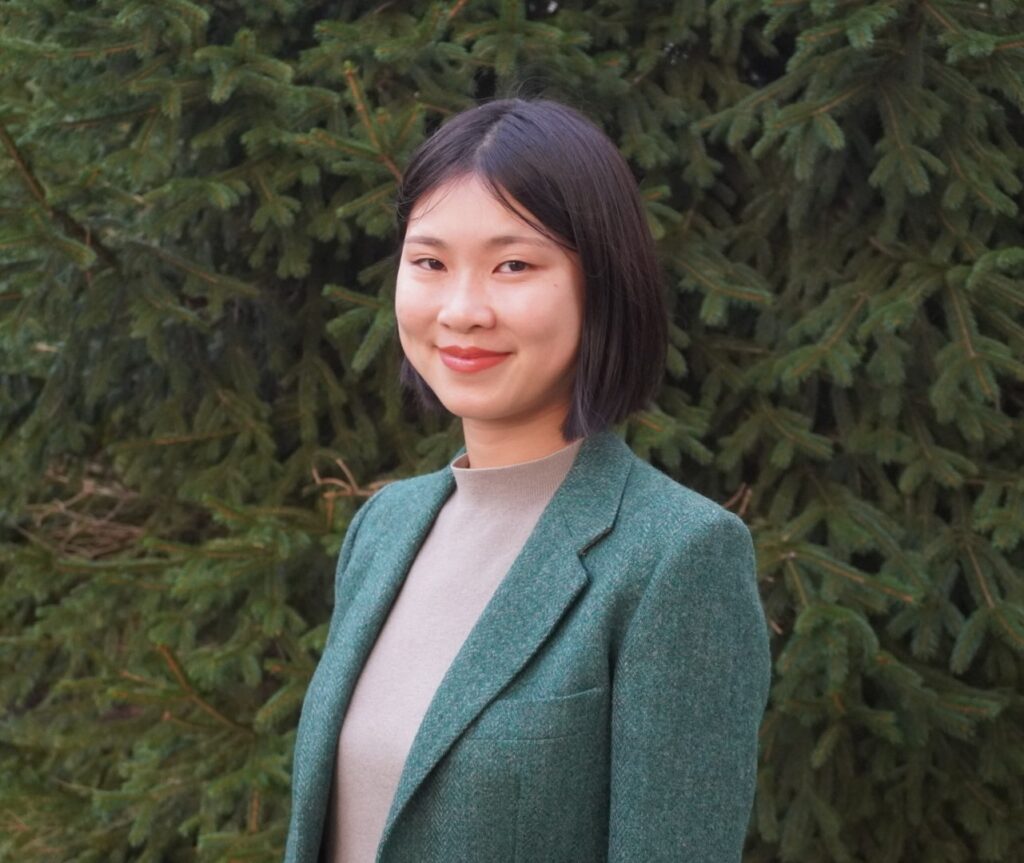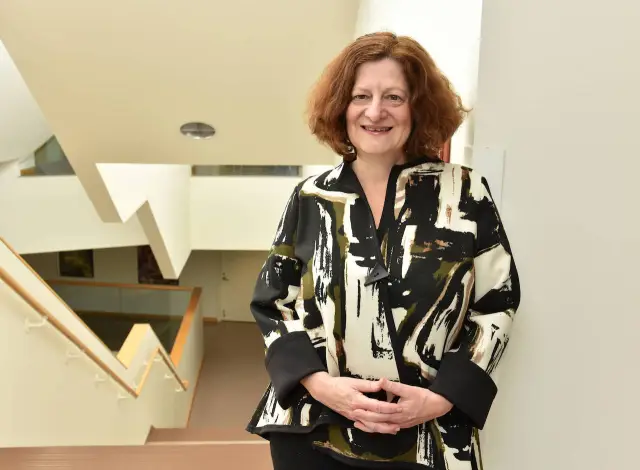Wendy Heller
Scheide Professor of Music History
What’s on a musicologist’s desk? Wendy Heller, a leading scholar in the field of Baroque music with expertise in the study of seventeenth- and eighteenth-century opera from interdisciplinary perspectives, invited us in for a peek into the method behind the musicology. The following responses were provided in November 2022.
A transformational sabbatical. A lot of the books on my desk right now are ones that I’m using to write the book I’ve been working on during my sabbatical, Animating Ovid: Opera and the Metamorphosis of Antiquity in Early Modern Italy. I had the idea that I wanted to do something about Ovid’s Metamorphoses because I wanted to better understand the relationship between opera and metamorphosis, or transformation [as in when a character disguises themself]. The first chapter of the book deals with early modern Florence and the relationship between sculpture and the origins of opera. The great [sixteenth- and early seventeenth-century] composer Giulio Caccini, for example, had a brother named Giovanni Battista Caccini, who was a sculpture restorer and sculptor for the Medici court. We can just imagine what these guys talked about! The more time I spent with material like this the more I realized that the visual culture is really critical [in opera]: we see people giving voice to frescoes, to statues, to paintings. So, on my desk, I have a lovely catalog from an exhibition that was held at the Uffizi Gallery in Florence in 2014 that I went to. It’s called Puro, semplice e naturale: nell’arte e Firenze tra Cinque e Seicento, and it was an exhibit where they were pulling together art from the period that had this very pure sensibility about it, which I’m relating to the development of the stile recitativo in the early seventeenth century in the invention of opera. There are books that go along with that, like a very famous book in art history, Taste and the Antique by Francis Haskell and Nicholas Penny. And a book that I love, love, love and need to give a shout to “Unearthing the Past: Archaeology and Aesthetics in the Making of Renaissance Culture” by Leonard Barkan, a brilliant scholar from the Comparative Literature Department (now emeritus), whose work has influenced me profoundly. I have, of course, a copy of Ovid’s Metamorphoses.
A new Shtick. I have my Yiddish textbook here as well. One of the things that I did during the pandemic was to begin studying Yiddish online at YIVO, the Yiddish Institute in New York. I also get together at least once a week with my good friend and study partner, Cheryl Lester, who taught Comparative Literature at the University of Kansas; we do our grammar exercises, read stories aloud, and catch up on all the news! Although I didn’t have a particularly observant upbringing, I worked my way through graduate school as a cantorial soloist and have a lot of experience singing in Hebrew, and I have basic musicological-Schubert-song-Bach-cantata German. I’m interested in two things: first, there is a vast Yiddish song repertory that I’d love to learn for my next recital. I’m also interested in the possibility of researching Yiddish theater.
A Verdi pleasant morning. I have the DVD of the Zeffirelli film of La Traviata with Plácido Domingo and Teresa Stratas on my desk because Simon [Morrison] asked me to do a lecture on La Traviata for MUS 238 (Romantic Music). So, this morning I came in and lectured to his class on La Traviata and I used this film. It’s from 1983 and it’s stupendous – absolutely stupendous. And along with that is The Verdi Companion.
Models of the past. This isn’t on my desk, but on a table opposite, I have a model of the Drottningholm Theatre outside of Stockholm, which is one of the very few opera theaters in existence that still has the Baroque stage machinery in it. My husband Jack Hill spent hours putting it together, as it’s made of hundreds of tiny cardboard pieces. I first toured the theater about a decade ago when Mark Tatlow, then the Music Director, invited me to speak at a conference associated with their performance of Monteverdi’s L’incoronazione di Poppea. Stage spectacle was remarkable in the seventeenth and eighteenth centuries! I still use my Drottningholm pictures when I teach opera.
Feigning madness. I also have sheets of paper with the musical notation from the Peking Opera Shanghai Immersion Program (POSIP), sponsored by the Program in East Asian Studies, which I’ve been involved in for the last few years, on my desk. The notation is sort of like a moveable ‘do’ system with numbers and measure-line markings that provide a kind of transcription of this very different style of singing. In the summer of 2018 and 2019, I had the opportunity to go to Shanghai along with the students in the program to learn directly from the top stars of the Shanghai Peking Opera Company. Although – unlike the students – I did not speak Mandarin, as an opera scholar I wanted to learn about Peking Opera and help the students better understand how it relates to western opera. I also think I ate every dumpling in the entire city during those two summers. I helped out this summer [2022] as well, though we did it remotely because of COVID. We all learned an aria, myself included, and then we worked in one-on-one Zoom meetings with these amazing teachers, and top stars, to prepare the music for a workshop performance. I also used this experience to present my first academic paper dealing with Chinese Opera: I compared excerpts from a Peking opera called The Cosmic Blade with a seventeenth-century Venetian opera entitled La finta pazza (The feigned madwoman), as both operas featured a woman who pretends to be insane. There are many mad scenes in opera, but the convention of feigned madness is really interesting as the protagonist must both act crazy and indicate either to the audience or other people on the stage that she’s only faking it. It’s a way to experiment with the extremes of what the musical language can do. I came to better understand how crazy the feigned mad scene was in The Cosmic Blade by learning an aria that the major character sings before she pretends to be crazy – the mad scene would have been way too hard! I ended up presenting the paper at the International Musicological Society in Athens and then had the chance to perform the aria at our workshop in Taplin Auditorium. Studying Yiddish and Peking Opera give me a chance to try something entirely new!
In Other News

Gavin Steingo Named 2024-25 Getty Research Institute Scholar
Jun 28, 2024
The Department of Music is excited to announce that Gavin Steingo, Professor of Music and Director of Undergraduate Studies, received a prestigious year-long fellowship at the Getty Research Institute (GRI) in …

Anna Yu Wang Named 2024 Luce/ACLS Early Career Fellow in China Studies
May 24, 2024
The Music Department at Princeton is proud to announce that Anna Yu Wang has been awarded a 2024 Luce/ACLS Early Career Fellowship in China Studies.

Cultivating Aluminum Flowers: Inside Steven Mackey’s Latest Electric Guitar Concerto
May 6, 2024
Steven Mackey’s Aluminum Flowers, a concerto for solo electric guitar and orchestra, made its world premiere on March 9, 2024 at the Kimmel Center. This concert featured jaw-dropping virtuosity of polymath guitarist JIJI.

